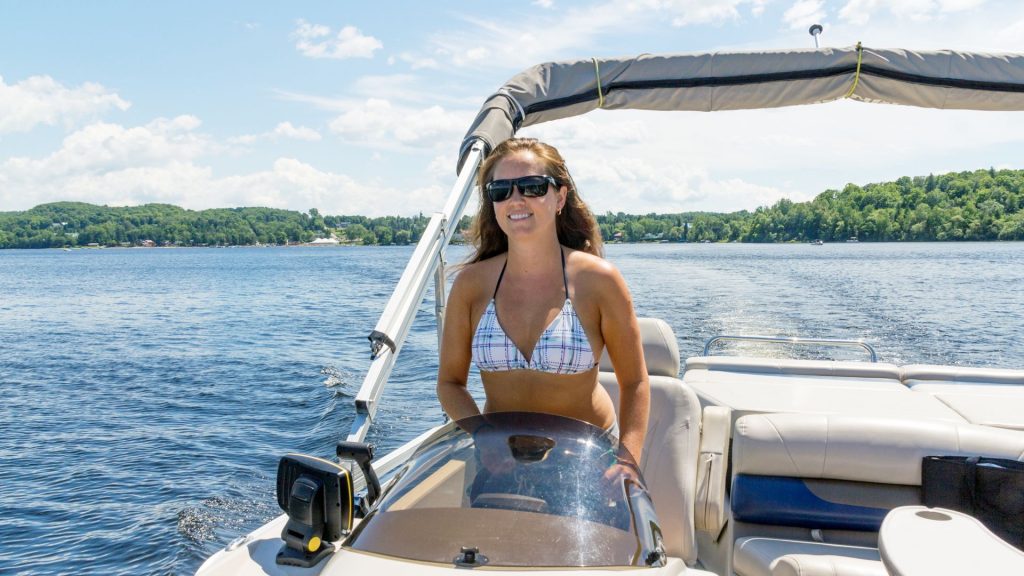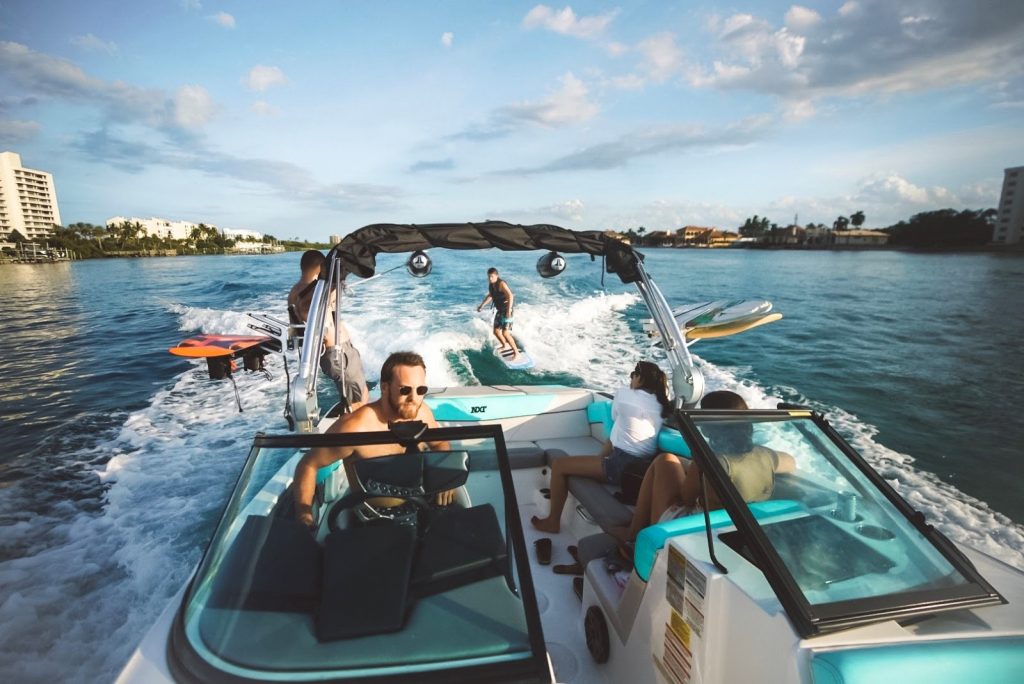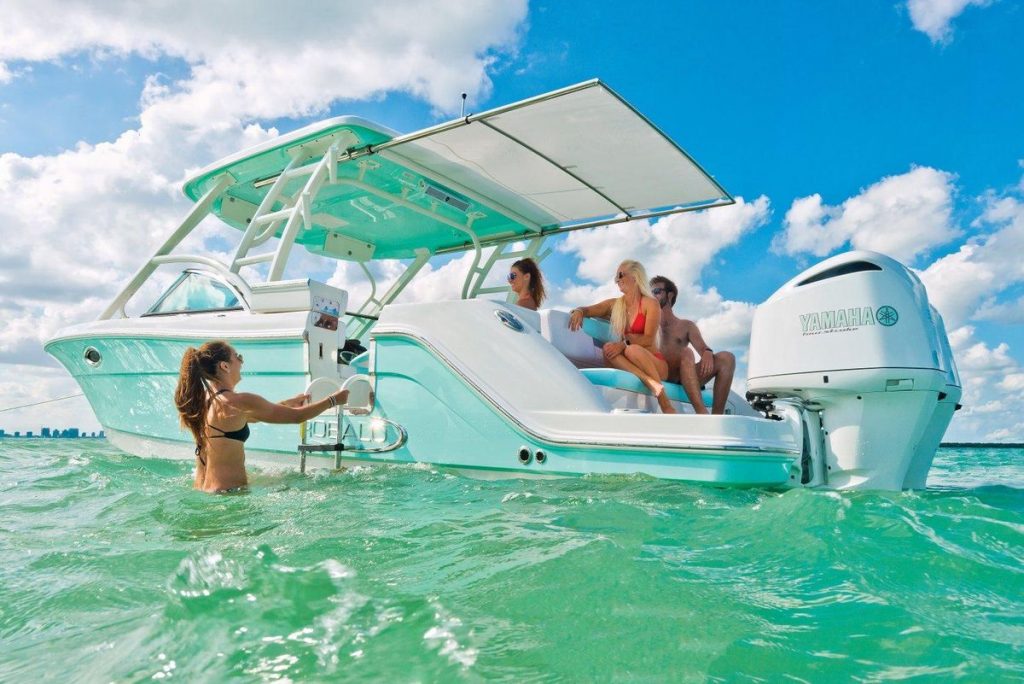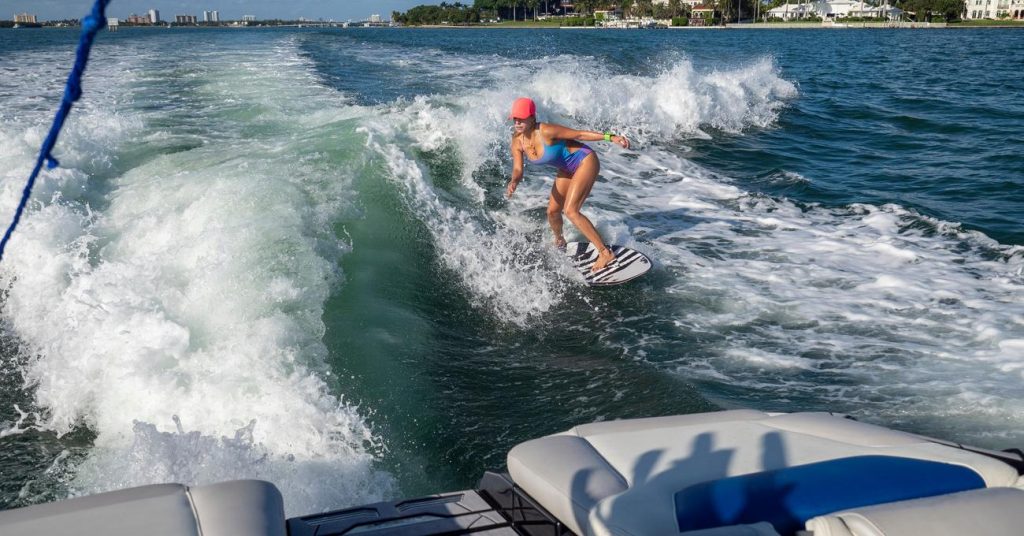Ga DNR Boat Registration: Essential Guide and Steps to Follow
In the state of Georgia, boat enthusiasts and owners are required to register their watercraft vessels with the Georgia Department of Natural Resources (DNR). This process ensures that all boats operating in public waters adhere to safety regulations and guidelines. Registering a boat with the Georgia DNR is a simple process that involves submitting an application with supporting documents, paying the associated registration fees, and receiving a Certificate of Boat Registration along with a validation decal.

The Georgia DNR enforces several regulations and requirements specific to the state, with resources available to help boat owners understand and comply with the rules. For example, some exemptions may apply, such as sailboats under 12 feet in length that do not require registration. Furthermore, the Georgia DNR offers assistance to those who may be in the process of buying or selling a boat, transferring registration, or obtaining temporary boat registrations.
Key Takeaways
- Boat registration in Georgia is mandatory for most watercraft vessels, ensuring safety and compliance with state regulations.
- The process involves submitting an application, providing supporting documents, and paying registration fees to the Georgia DNR.
- Resources are available to help boat owners navigate exemptions, transfers, and temporary registrations within the state.

Understanding Boating in Georgia
Boating is a popular recreational activity enjoyed by many Georgians, with 151 boat ramps available for use across the state. The Georgia Department of Natural Resources (DNR) is responsible for overseeing boating regulations and safety to ensure that residents and visitors can enjoy the waters of Georgia responsibly.
All mechanically-propelled vessels, including boats and sailboats, must be registered with the Georgia DNR to operate legally on public waters. The registration process can be completed online, by phone, or by mail. Upon successful registration, boat owners are issued a Georgia Certificate of Boat Registration and a validation decal that must be displayed on their vessel.
Some exceptions to the registration requirement include canoes, kayaks, rowboats, sailboats under 12 feet in length, and rubber rafts that do not have mechanical propulsion. These non-motorized vessels are allowed to operate on Georgia waters without registration as long as they are paddled, poled, oared, or windblown.
The Georgia DNR enforces boating rules and regulations under O.C.G.A. Title 52, Chapter 7. These regulations cover a wide range of topics such as life jacket requirements, boat lighting and equipment standards, and boating under the influence laws. It's important for all boaters to familiarize themselves with these rules to ensure the safety of themselves and others on the water.
Additionally, those planning to organize a marine event, such as a boat race or a fishing tournament, must obtain a Marine Event Permit. Applications should be submitted to the Boating Law Administrator at least 30 days prior to the event to ensure ample time for review and approval.
In summary, boating in Georgia is governed by the Georgia Department of Natural Resources, with registration required for mechanically-propelled vessels. Knowing and following the rules and regulations set by the DNR contributes to a safe and enjoyable experience on the waters of the state.

Starting Your Boat Registration
The process of applying for a GA DNR boat registration requires several steps to complete accurately. Before starting, it's essential for boat owners to understand the specific requirements needed for registering a vessel in the state of Georgia.
First and foremost, boat owners should complete the Georgia Vessel Registration Application, which will require specific information about the vessel, including its identification and description. The boat owner must also provide their personal details and information related to any lien holders or co-owners, if applicable.
While preparing the application, it's essential to gather all necessary documents. In most cases, this will include a bill of sale or other proof of ownership, such as a title or a notarized statement if the boat is coming from a non-title state. The applicant must also provide their identification and legal address if they are new to the Georgia Department of Natural Resources system.
Boat registrations in Georgia are managed by the Department of Natural Resources Division. Applications can be submitted online, by phone at 1-800-366-2661, or through mail to the following address:
Georgia Department of Natural Resources
P.O. Box 934943
Atlanta, GA 31193-4943
The time it takes to process the application may vary depending on the method of submission. It's essential to stay aware of any deadlines and ensure that all fees associated with the registration process are paid promptly.
In addition to completing the vessel registration application, registering a boat in Georgia may require the boat owner to purchase a fishing or hunting license if planning to use the boat for these purposes. Boat owners can visit the Georgia.gov page for more information on purchasing licenses.
Once the vessel registration application is approved, boat owners will receive a Georgia Certificate of Boat Registration and a validation decal. These must be displayed on the boat when operating it in public waters within the state. There are a few exceptions, such as sailboats under 12 feet in length, which do not require registration.
In summary, the process of GA DNR boat registration involves completing the proper application, gathering required documents, submitting the necessary fees, and acquiring necessary licenses if applicable.

Registration Fees and Payments
When registering a boat in Georgia, it is essential to understand the applicable registration fees. The Georgia Department of Natural Resources (DNR) Boat Registration handles these fees, which are necessary for boat owners to legally operate their vessels in the state.
The fees for boat registration differ depending on the type of vessel and the transaction involved. There is a $3.00 online transaction fee for recreational license transactions, a $10.00 online boat registration transaction fee, and an optional hard card price of $6.00. The state also offers a transactional discount of $3.00 for renewing certain licenses before their expiration dates.
For first-time boat registration, an applicant needs to pay the new Georgia registration fees accordingly. When transferring ownership of a vessel, it involves both transfer fees and new registration fees. Boat registration renewal is due every three years, and the process involves a separate set of costs, as mentioned above. All transactions can be completed online, making the process more efficient and convenient for boat owners.
Payments for vessel registration fees can be made through different methods, ensuring that the boat owners have various options to select from. Owners can pay using credit cards, debit cards, e-checks, and even money orders, as supported or suggested by DNR.
For any questions regarding the boat registration fees and payments, boat owners can contact the DNR at 1-800-366-2661 for more information and assistance.

Identification and Verification
When registering a boat with the Georgia Department of Natural Resources (GA DNR), the boat owner needs to provide proper identification and verification documents. These documents may be required when applying either online or by mail.
For the majority of boat owners, a valid U.S. driver's license is accepted as a primary identification document. However, if an applicant is not a U.S. resident or citizen, they may provide a non-U.S. driver's license or a green card as an alternative. Additionally, a passport or a U.S. travel visa may also be used for identification purposes.
The boat owner's name, Social Security number, and date of birth are other essential details required during the registration process. These details help ensure the proper identification of the boat owner and facilitate the registration process.
Moreover, the registration process demands information about the boat itself, which comes in the form of a Hull Identification Number (HIN). A HIN is a 12- or 14-character serial number that uniquely identifies a boat, similar to a car's VIN. It is mandatory for all boats manufactured or imported on or after November 1, 1972, to bear a HIN.
Once the necessary identification and verification documents are provided, the boat owner can proceed with the registration process, which may comprise additional steps, such as completing and submitting appropriate forms and paying the relevant fees.

Sale and Transfer of Registration
When a boat is sold or its ownership is transferred in the state of Georgia, the new owner must register the vessel with the Georgia Department of Natural Resources (DNR). In order to transfer registration, certain documents need to be provided, such as a bill of sale, the previous owner's registration card, and any other supporting documents that show the chain of ownership. If the Georgia boat has a Georgia electronic title, no additional documents may be needed for transfer.
In cases where a power of attorney is involved, the involved parties must ensure that the documentation is complete and complies with Georgia state regulations. The state of Georgia requires that all boat owners register their vessels with the Georgia DNR, except for sailboats under 12 feet in length.
When purchasing a boat from a dealer, it is important to obtain the dealer's invoice as proof of purchase. This document will be required when registering the boat with the Georgia DNR. Dealers are knowledgeable about Georgia state regulations and can provide valuable guidance when it comes to registration requirements.
New owners should complete the registration process as soon as possible to avoid penalties. Boat registration can be completed online, by phone at 1-800-366-2661, or by mail at the following address:
Georgia Department of Natural Resources
P.O. Box 934943
Atlanta, GA 31193-4943
In summary, transferring a boat registration in the state of Georgia involves gathering the necessary documents such as a bill of sale, previous registration cards and, in some cases, a power of attorney. Registering the boat with the Georgia DNR is a vital step for the new owner, and working alongside dealers can make the process more manageable.

Georgia Wildlife Resources and Recreations
Georgia's Department of Natural Resources (DNR) manages a wide array of wildlife resources, with its Wildlife Resources Division playing a crucial role in promoting recreational activities such as hunting and fishing. These outdoor adventures play a vital part in both the preservation and enjoyment of the state's natural resources.
The Wildlife Resources Division offers a range of licenses for individuals who wish to partake in hunting and fishing activities throughout the state. For example, the fishing license is essential for those pursuing freshwater or saltwater fishing in Georgia's vast lakes, rivers, and coastal areas. Along with fishing, hunting is a popular pastime in the state, and the Division expertly manages the hunting seasons to ensure the sustainable population of different game species.
To become more involved in the preservation of Georgia's natural resources, individuals can participate in volunteer opportunities offered by the DNR. Volunteer work plays a significant role in keeping Georgia's state parks pristine, while also encouraging awareness and educational opportunities for everyone.
Some additional recreation options include visiting a state park, where visitors can enjoy hiking, picnicking, and exploring the beautiful grounds. Another popular activity is practicing one's marksmanship at a DNR-operated shooting range, which offers both outdoor and indoor facilities to accommodate various skill levels.
Lastly, for those interested in getting out on the water, Georgia's DNR maintains numerous well-equipped boat ramps statewide. Boat owners need to ensure that they follow all regulations and requirements, including having a Georgia Certificate of Boat Registration with a validation decal, to legally operate their watercraft on public Georgia waters.
In conclusion, Georgia's Department of Natural Resources and its Wildlife Resources Division diligently work together to create opportunities for residents and visitors to engage in recreational activities and appreciate the state's abundant wildlife resources.

Operations and User guidelines
Before operating a boat in Georgia, it is essential to comply with the regulations set forth by the Department of Natural Resources Division. Boat registration is required for most watercraft operating on public waters in Georgia. Exceptions include sailboats under 12 feet in length, canoes, kayaks, rowboats, and rubber rafts with no mechanical propulsion.
When registering, the user must obtain a Georgia Certificate of Boat Registration and a validation decal, which must be affixed to the watercraft. It is crucial to ensure that the validation decal is securely attached to the boat so that it is visible and legible during operation. Owners should also be aware of the boat's Hull Identification Number (HIN) and understand its significance.
Boaters should notify the Department of Natural Resources within 60 days of any event that may affect their boat's registration status, such as abandoning, destroying, or losing it. Failure to notify may result in penalties or fines.
When operating a boat, users must adhere to safety guidelines, including having the necessary equipment on board, understanding motor restrictions, and following specific requirements for personal watercraft. Responsible operation also involves avoiding hazardous situations, such as boating under the influence and ensuring that water skiers and towed skiers are following the applicable laws.
In summary, following the operations and user guidelines for boat registration and usage in Georgia is vital for ensuring a safe and enjoyable boating experience. By registering the watercraft, affixing proper identification, notifying authorities when necessary, and adhering to safety rules, boat owners can confidently navigate Georgia's public waters.

Support and Accessibility
The Georgia Department of Natural Resources (DNR) provides robust support to boat owners during the registration process. They maintain a help desk with local representatives who can be reached Monday through Friday, from 8:00 a.m. to 6:00 p.m., and Saturday to Sunday from 9:00 a.m. to 5:00 p.m. These knowledgeable representatives can provide assistance and answer any questions regarding boat registration, insurance, and related topics.
Additionally, boat owners can create and manage their customer account with Georgia DNR's online platform, making it simple and convenient to access important information and submit applications. The online system also provides resources such as required equipment checklists and the ability to purchase fishing or hunting licenses.
The Georgia DNR's Law Enforcement Division ensures that all registered boats have proper insurance coverage and adhere to safety requirements. They also regularly publish reports regarding boat safety, enforcement actions, and any changes to boating regulations in order to keep the boating community informed and safe.
In conclusion, Georgia DNR offers comprehensive support and accessibility for boat owners looking to register their vessel. With a dedicated help desk, an easy-to-use online customer account platform, and a strong commitment to insurance and safety enforcement, boat owners in Georgia can confidently navigate the registration process.

Temporary Boat Registration
In Georgia, boat owners may obtain a temporary boat registration if they need to use their vessel before receiving the official registration. The Department of Natural Resources Division provides this option for boat owners who have recently purchased a new or used boat and are awaiting the processing of their registration application.
To obtain a temporary boat registration, boat owners should first access the Georgia Department of Natural Resources Division website. Here, they can find the necessary forms, fees, and supporting documents required to apply for a temporary boat registration. The boat owner will need to provide information such as the boat's Hull Identification Number (HIN) and the completed Vessel Registration Application.
Once the application is submitted and the necessary fees are paid, the boat owner will receive a temporary authorization number. This number should be displayed on the vessel, allowing the owner to legally operate the boat during the temporary registration period. It is important to note that this temporary authorization number is not the permanent registration number and should be replaced with the official registration number once it is obtained.
Temporary boat registrations are typically valid for a short period of time, which is usually between 30 and 60 days. During this time, the boat owner should ensure they complete the full registration process to avoid any fines or penalties. Remember to keep a copy of the submitted application and supporting documents on the boat while operating it under the temporary registration.
In summary, the temporary boat registration in Georgia is a useful option for boat owners to legally operate their vessels while waiting for their official registration documents. By following the guidelines and obtaining a temporary authorization number, boat owners can ensure they remain compliant with state regulations and can enjoy their time on the water without any legal concerns.

Additional Wildlife Resources
When it comes to boating and water-based activities in Georgia, the Department of Natural Resources (DNR) plays a crucial role in providing essential services and enforcing necessary regulations. The DNR ensures that both the local environment and those who enjoy it are protected and able to enjoy the state's beautiful waterways.
One important aspect of boating regulations in Georgia is the requirement for boat registration. However, there are exceptions for certain watercraft, such as sailboats under 12 feet, canoes, kayaks, rowboats, and rubber rafts lacking mechanical propulsion. These vessels, if paddled, poled, oared, or windblown, are not required to have a certificate of registration or validation decal.
In addition to registration requirements, individuals involved in hunting waterfowl must purchase a Federal Duck Stamp, which is a mandatory component for validating their hunting licenses. Federal Duck Stamps are an important conservation tool, helping to preserve the habitats of waterfowl and other wildlife across the nation.
Boaters should also be aware that certain rules and regulations may vary in private ponds and lakes depending on the owner's discretion and property rights. In such cases, it's advisable to consult with the owner or property manager before engaging in any boating or water-based activities.
Overall, the Georgia DNR takes great care in managing and preserving the state's water resources. By adhering to these regulations and understanding the various aspects of boat registration and wildlife resources, boaters can play their part in ensuring the preservation of Georgia's waterways for generations to come.

Bonus Information
Georgia Department of Natural Resources (GA DNR) is dedicated to environmental protection, ensuring that the state's natural resources are conserved for future generations. One aspect of their mission is to oversee boat registrations in the state, which helps maintain a safe and enjoyable boating experience for all Georgians.
Boat registration fees contribute to efforts in preserving the state's waterways and promoting safe boating practices. In addition to supporting the GA DNR, these fees may qualify boaters for a tax credit, making it an even more appealing process for responsible boat owners.
For those interested in pursuing careers related to environmental protection and natural resources, GA DNR offers a variety of opportunities. Professionals in the field may find themselves working within state parks, in conservation divisions, or supporting the agency's ongoing environmental initiatives.
Georgia's state parks play an essential role in preserving the environment while providing valuable recreational opportunities for residents and visitors. Ensuring that boats are registered with the GA DNR is a crucial step toward keeping these parks and waterways clean, safe, and usable for all who enjoy them.
In summary, the GA DNR boat registration process is not only a legal requirement but also an essential component of the agency's mission to protect Georgia's natural resources. From environmental conservation to promoting safe boating practices, this system benefits both individual boaters and the state as a whole. By staying informed and registering their boats, Georgians can do their part to maintain the beautiful waterways that make the state a cherished destination for outdoor enthusiasts.

Frequently Asked Questions
What paperwork is needed to register a boat in Georgia?
To register a boat in Georgia, one needs to provide a completed Vessel Registration Application form and the proper supporting documents, such as a bill of sale. If one is buying or selling a used boat, additional documents related to the transaction are required. The boat's Hull Identification Number (HIN) is also necessary for registration.
How do I contact the DNR about my boat registration in Georgia?
To contact the Department of Natural Resources (DNR) about boat registration in Georgia, call 1-800-GEORGIA (1-800-436-7442) between 08:00 a.m. - 05:00 p.m, or visit their official website for more information.
How do you transfer ownership of a boat in Georgia?
To transfer ownership of a boat in Georgia, it is necessary to provide a bill of sale and complete a Vessel Registration Application with the new owner's information. Additionally, the new owner will need to submit any required supporting documents, such as proof of ownership, to finalize the transfer.
Does GA require boats to be titled?
Georgia does not require boats to be titled. However, a Certificate of Boat Registration and validation decal are required to legally operate a boat on public waters in Georgia, with some exceptions like sailboats under 12 feet in length and non-mechanically propelled vessels such as canoes, kayaks, and rowboats.
How do I renew my boat registration online in Georgia?
To renew a boat registration online in Georgia, please visit the Georgia DNR Boat Registration Renewal web page. This page will provide information and instructions on how to renew your registration online.
What format should my boat registration numbers be in Georgia?
The boat registration numbers in Georgia should follow the format "GA" followed by four numerals and then two letters (e.g., GA-1234-AB). The numbers and letters must be displayed on both sides of the bow and be clearly legible. The registration numbers must be in block characters, at least three inches high, and contrasting with the color of the background on which they are displayed.
Charlie is Editor-in-Chief of Sea Magazine